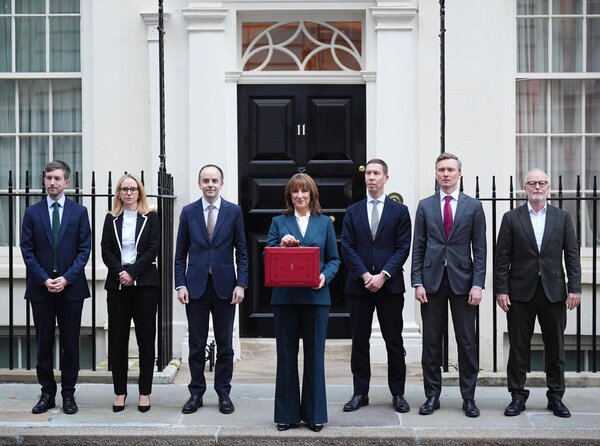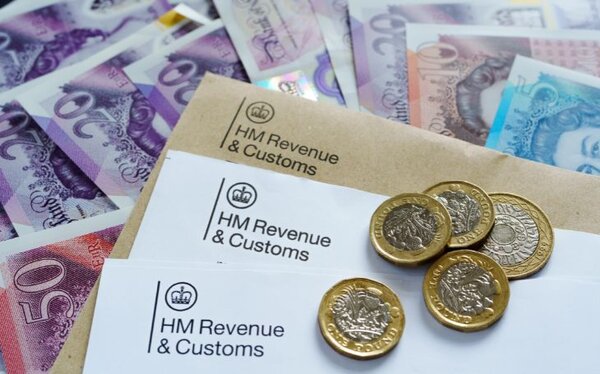Let’s Break This Down Together...
Living abroad and working for yourself? You might think you’ve left the UK taxman behind, but it’s not always that simple.
Understanding your UK tax obligations when you're self-employed overseas can feel confusing. From residency tests and international income to double taxation agreements and National Insurance, there’s a lot to get your head around.
But don’t worry! This guide breaks everything down step by step, helping you figure out if you’re still on the hook with HMRC, what you need to report, and how to avoid paying more tax than you should. Let’s get into it!
Introduction: Understanding Your Tax Obligations Abroad
If you’re a UK expat, getting to grips with your tax obligations abroad is essential to avoid unexpected bills and stay on the right side of the law.
The UK tax system can be complex, especially when you’re dealing with income from more than one country. Your tax obligations will depend on your residency status, the type of income you receive, and your specific employment or self-employment arrangements.
It’s important to understand how UK income tax, capital gains tax, and national insurance contributions might still apply to you, even while living overseas.
If you need to pay UK tax, you’ll usually have to complete a self assessment tax return each year, declaring your worldwide income if you’re a UK resident, or just your UK-sourced income if you’re non-resident.
Filing your assessment tax return accurately and on time is crucial to avoid penalties and ensure you only pay the tax you owe.
Whether you’re handling your own tax return or working with a tax professional, staying informed about your UK tax obligations can help you minimise your tax liability, claim any available tax reliefs, and avoid double taxation.
Taking the time to understand the UK tax system and your responsibilities is the first step to stress-free expat living.

What Makes You Tax Resident in the UK?
The Statutory Residence Test determines your tax status. It’s not just about how you feel – HMRC has specific rules.
Spending 183+ days in the UK automatically makes you tax resident. That’s about half the year, and it doesn’t need to be consecutive days.
When you spend fewer days in the UK, the “sufficient ties” test applies. These ties include family, accommodation, work, and time spent in previous years.
Non-resident status must be established, not assumed. If you are outside the UK for less than a complete UK tax year, you will generally remain a UK tax resident.
The Statutory Residence Test also considers the number of tax years you have spent in or out of the UK, and the timing of your presence in relation to the UK tax year can affect your residency status. Many self-employed people make this mistake and face unexpected tax bills later.
How Self-Employed Tax and Self Assessment Tax Return Work When Living Abroad
Your UK tax obligations depend on your residency status. If you’re still UK resident, you’ll pay tax on worldwide income.
If you’ve properly established non-resident status, you’ll generally only pay UK tax on UK-sourced income. This might include rental income from UK properties.
Double Taxation Agreements (DTAs) help prevent paying tax twice on the same income. Without these agreements, you could face double tax on your income in both the UK and the overseas country where you live or work. The UK has agreements with over 130 countries.
You’ll still need to complete a Self Assessment tax return if you have UK tax liability. You may also need to file tax returns with the tax authority in your overseas country. If you have UK taxable income while living abroad, you must file a UK tax return and may be able to claim tax credits or relief for tax already paid tax abroad.
I once helped a client who moved to Spain but continued working for UK clients. He was shocked to discover he needed to file returns in both countries. Keeping records of paid tax in both countries is important for claiming tax credits and avoiding double tax.
National Insurance Contributions Considerations
Class 2 National Insurance Contributions are typically required for self-employed Brits abroad. These are currently £3.45 per week – much cheaper than many countries’ social security systems.
Voluntary contributions protect your State Pension entitlement. Without them, you might find gaps in your contribution record when retirement comes. Social security contributions are important for maintaining access to benefits like pensions and healthcare, both in the UK and abroad.
Social security agreements with some countries may affect your NIC obligations. You may be required to pay social security or pay social security contributions in the overseas country, depending on local rules and agreements. The UK has agreements with EU countries, the USA, Canada and several others.
Form CA3822 allows you to continue paying UK contributions while working abroad. It’s worth considering if you plan to return to the UK eventually.

Avoiding Double Taxation
Double taxation is a common concern for anyone earning income in more than one country. It happens when two countries both try to tax the same income, which can quickly lead to a higher tax bill than expected. Fortunately, the UK has double taxation agreements with many countries around the world, designed to prevent you from being taxed twice on the same income.
These double taxation agreements set out which country has the right to tax different types of income, such as employment income, self employment income, or rental income.
In many cases, you’ll either be exempt from UK tax on certain foreign income, or you’ll be able to claim a foreign tax credit for tax already paid overseas, reducing your UK tax liability. For example, the US-UK tax treaty helps ensure that American expats in the UK, or Brits working in the US, don’t pay tax twice on the same income.
If you’re a UK resident working abroad, it’s important to check whether a double taxation agreement exists between the UK and your country of residence.
Claiming relief under these agreements can help you avoid double taxation and ensure you only pay the right amount of tax in each country. Always keep records of tax paid in both the UK and the foreign country, and seek advice if you’re unsure how the rules apply to your situation.
Capital Gains and Tax Relief
Capital gains tax is something every UK expat should be aware of, especially if you own property or investments in the UK. If you sell or dispose of UK assets while living abroad, you may still be liable to pay UK capital gains tax on any profit you make.
This applies even if you’re no longer a UK resident, so it’s important to factor this into your tax planning.
However, there are ways to reduce your capital gains tax liability. The UK offers an annual exempt amount, which allows you to make a certain amount of gains each tax year before any tax is due.
If you’re selling your main home, you may also qualify for private residence relief, which can significantly reduce or even eliminate your capital gains tax bill.
Additionally, if you’re a non-resident, you might be able to claim relief from capital gains tax under a double taxation agreement, depending on the terms agreed between the UK and your country of residence.
Understanding your eligibility for these tax reliefs and how double taxation agreements apply to your situation can help you avoid unnecessary tax and make the most of your UK assets while living overseas.

Timing Your Move and Split-Year Treatment
The tax year can be split between resident and non-resident periods. The UK tax year runs from 6th April to 5th April, and the timing of your move in relation to the UK tax year can affect your tax status and obligations. This means you’re not necessarily stuck with one status for the entire tax year.
Timing your departure can significantly impact your tax bill. Leaving early in the tax year (which starts 6th April) can be advantageous.
Keep detailed records of your presence in the UK. Flight bookings, accommodation receipts and bank transactions can help prove your whereabouts.
Different rules apply to income earned before and after departure. Income earned during your UK resident period is taxed differently from that earned as a non-resident.
Self-Employment and Tax Planning
For self employed individuals living abroad, managing your UK tax obligations requires careful planning.
You’re responsible for reporting your self employment income and allowable business expenses on your self assessment tax return each year. Claiming tax deductions for legitimate business expenses can help reduce your taxable income and lower your overall tax liability.
In addition to income tax, you may need to pay class 2 and class 4 national insurance contributions, which can affect your entitlement to UK social security benefits, such as the State Pension.
It’s important to understand how your overseas working arrangement impacts your need to pay UK social security, and whether you can benefit from social security agreements between the UK and your country of residence.
Effective tax planning is key for self employed individuals. Strategies like income shifting, making pension contributions, and timing your income and expenses can all help minimise your tax bill and keep you compliant with UK tax laws.
Consulting a tax professional with experience in expat and self employment tax can provide valuable guidance, ensuring you make the most of available tax reliefs and avoid costly mistakes.

Common Pitfalls to Avoid
Assuming non-residency without meeting the legal criteria is a common mistake. Just because you live abroad doesn’t automatically make you non-resident for tax purposes.
Forgetting to report rental income from UK properties catches many people out. This remains taxable in the UK regardless of where you live.
Missing foreign income reporting requirements on UK returns can lead to penalties. If you’re still UK resident, you must declare worldwide income.
Overlooking tax registration requirements in your new country is another trap. Most countries expect you to register and pay taxes locally if you’re living and working there.
Failing to register with the local tax authority can have serious tax implications, including penalties and additional income taxes.
Final Thoughts
UK tax obligations can follow you abroad depending on your residency status and income sources. It's not as simple as moving away and forgetting about HMRC.
Professional advice is valuable when navigating international taxation as a self-employed person. The rules are complex and constantly changing.
Maintaining clear records of your whereabouts and income sources is essential. Good record-keeping will save you headaches later.
Your tax situation may change over time, so regular reviews of your status are advisable. What works this year might not work next year.











